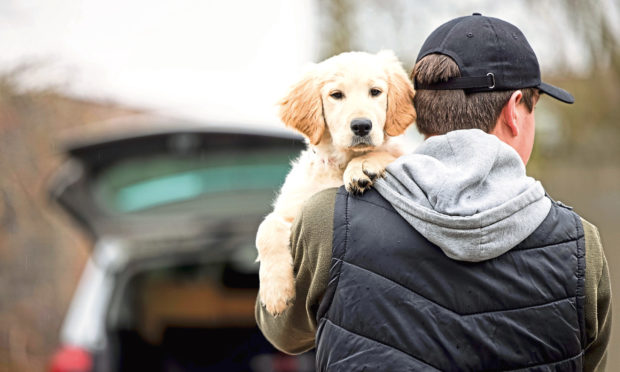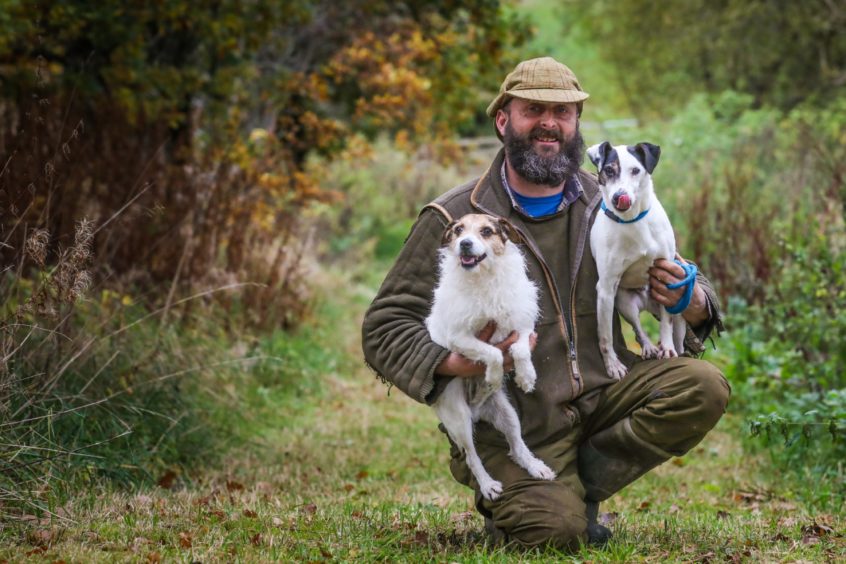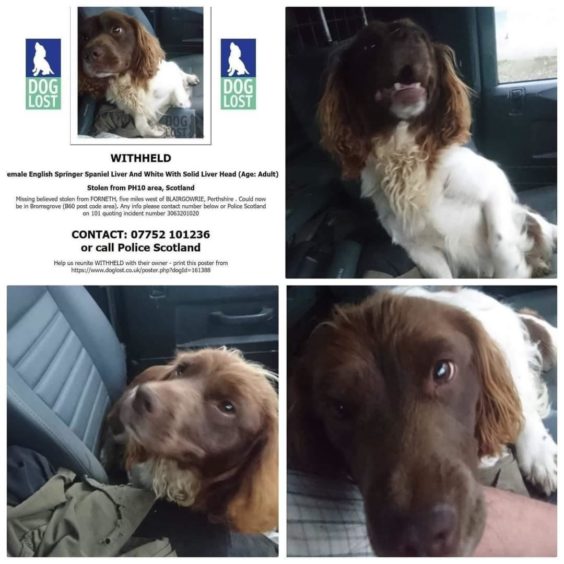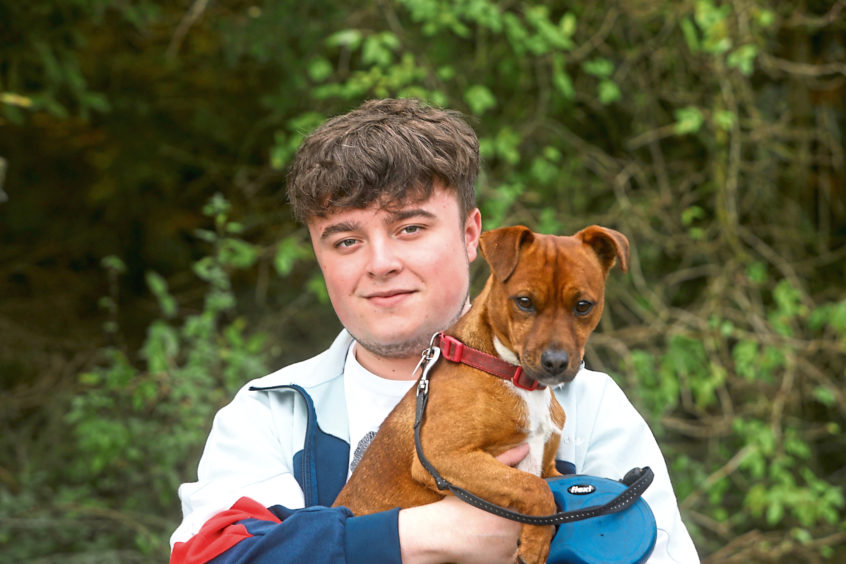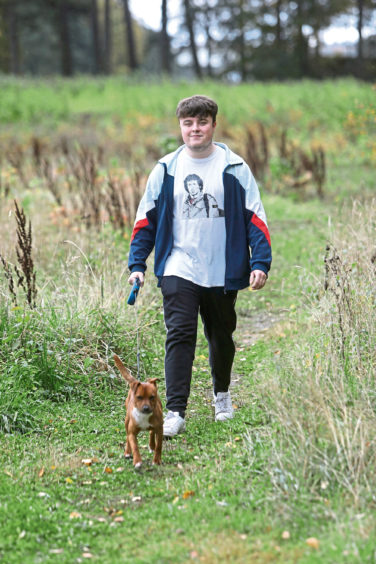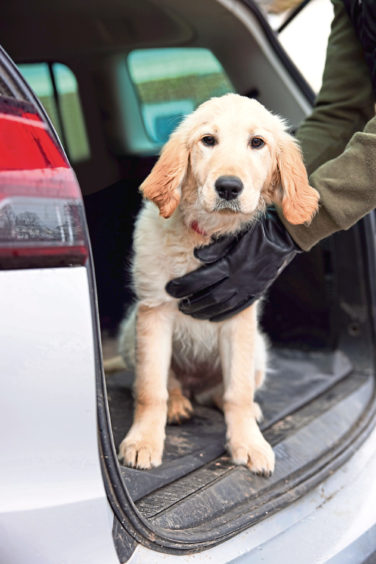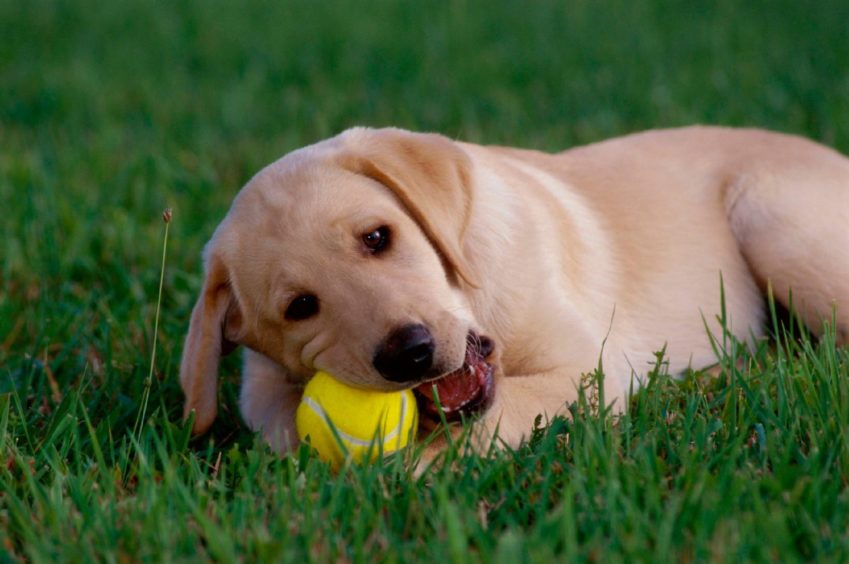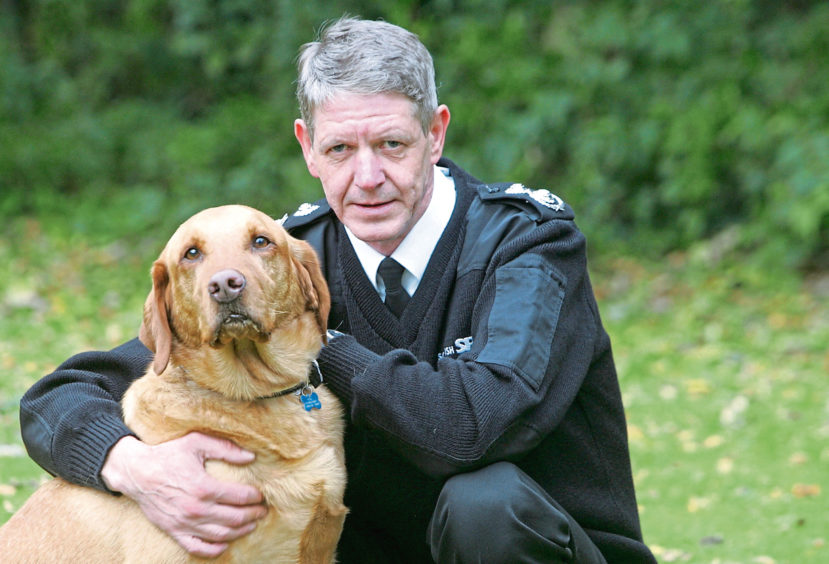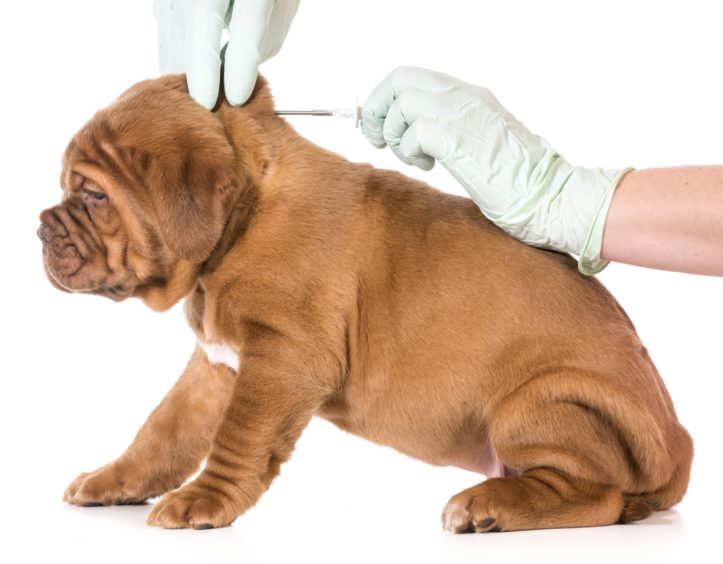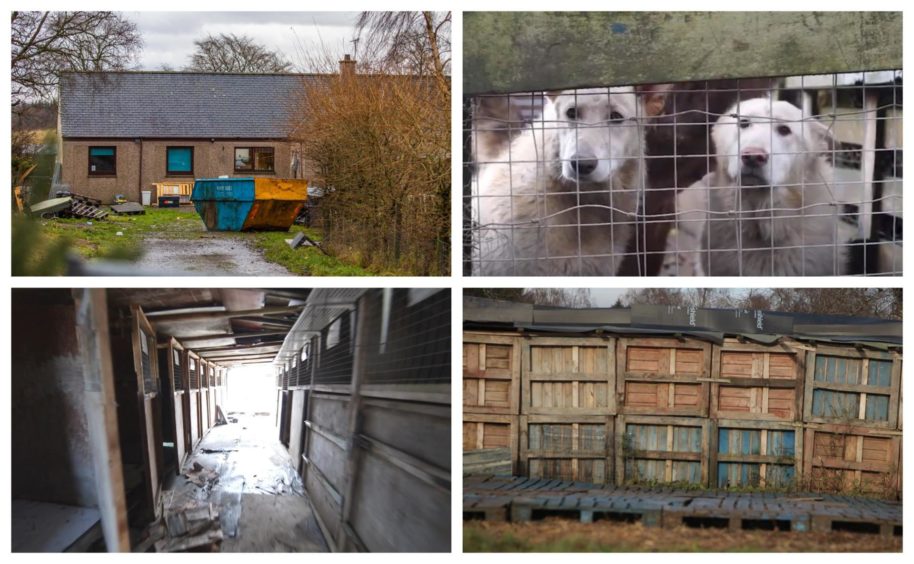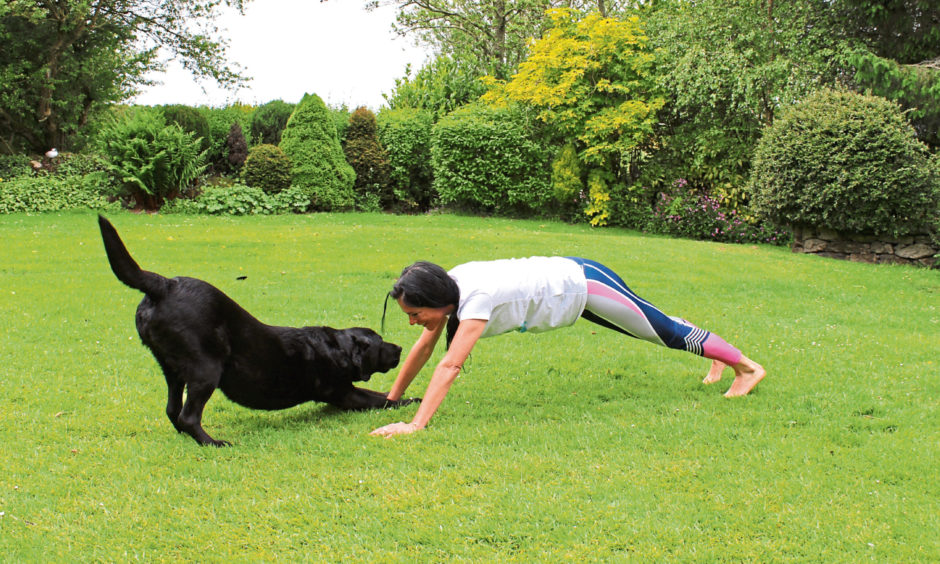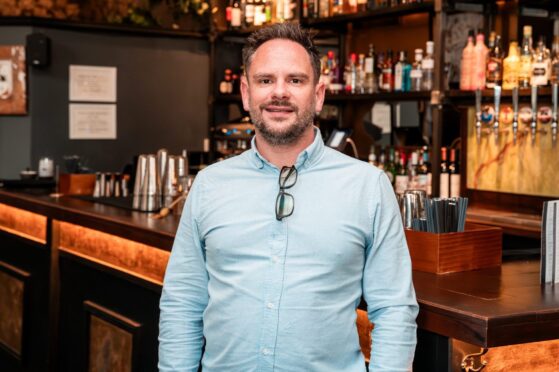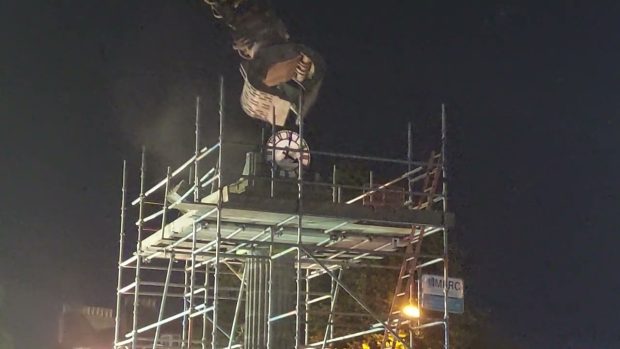Dog thefts have skyrocketed over the Covid-19 pandemic, with demand driving a surge in puppy prices. As experts call for tougher punishments, Gayle Ritchie investigates.
It’s been seven months of hell for Craig Brown.
The gamekeeper’s beloved springer spaniel “M” was stolen from kennels near Blairgowrie in October and has never been found.
Each day Craig hopes and prays for news of her whereabouts.
She was one of three dogs taken – the other two were male Jack Russells which were found roaming streets in Bromsgrove, south of Birmingham, more than 400 miles from home.
“It’s been an absolute nightmare,” says Craig, 50.
“When the three dogs were taken, I worried what might be happening to them.
“You hear stories about dog baiting; you wonder if that’s why they’ve taken them. It’s an awful thing to go through.”
With no sign of M, Craig, who suspects she is being used for breeding, can only pray she will be found soon, although he fears she could be in a poor condition.
“It’s a huge worry, always wondering – where is she? It’s been seven months now and no sign of her,” he laments. “If she’s being used for breeding, I wonder what will happen to her because she’s not a young dog.
“Will she be dumped? She’ll not be in good nick. But hope is all I’ve got.”
Along the road in Meikleour on the same day in October, Ally McLaren watched as his Jack Russell terrier Harvey was snatched right in front of his eyes.
All he could do was look on in horror as the thief drove off, taking videos and pictures on his phone. It was one of the most dreadful moments of his life.
After a week of stress and sleepless nights, Ally, 21, got the news he’d been hoping for – that Harvey had been found.
Just like Craig’s dogs, Harvey was seen wandering the streets of a village in the Bromsgrove area. While a little on the lean side, he was in decent condition.
Ally reckons the dognapper, who had been seen acting suspiciously in the area a month before the incident, had hoped Harvey was a female – from which he could breed.
When he was reunited with his cherished pet, it was “the best feeling ever” and a huge relief.
It’s thanks to Katie McCandless Thomas, who runs the Missing Pets, Perth and Kinross Facebook page, that the three Jack Russells were traced.
Her online appeal went viral and people across the UK kept their eyes peeled for the dogs.
The Perthshire thefts sparked a major police investigation, and a UK-wide search coordinated by the Missing Pets, Perth and Kinross group among others.
A 38-year-old man was arrested by police investigating the thefts, but he was liberated by the procurator fiscal without appearing in court. The Crown Office said he was released pending further enquiries.
Sadly, stories like Ally and Craig’s have become increasingly common.
The problem is escalating across the UK, with reports of dog thefts, or attempted dog thefts, hitting the headlines every week.
Last month, an attempted guide dog theft in Dundee, which left the blind owner unharmed but upset, was described as like “stealing someone’s eyes”.
And dognappers are becoming more brazen and violent.
It’s believed they had seen the designer pup – thought to be worth £5,000 – on Instagram before they stormed the property.
Thankfully, the pup was found two days later at the side of a road.
In December, a retired police officer was beaten by two masked men and robbed of his sprocker spaniel in London.
And in January, Plymouth student Ally Knight was knocked to the ground and punched by two men trying to steal her pet pug.
Celebrities, too, have been targeted. Lady Gaga had her two French bulldogs stolen in an incident in which her dog walker was shot and injured in February. They were found safe and unharmed two days after being stolen.
In March, there was a spate of attempted dog thefts in Dundee, including in Baxter Park, near the Dighty Burn, and at the Stannergate where a 14-year-old boy was approached by three men, one of whom attempted to take his dog’s lead from him.
It’s estimated that dog thefts have risen by 250% nationwide following increased demand during the pandemic.
But it isn’t currently defined as a specific crime, with dogs classed as “property” under the Theft Act 1968.
This means stolen pets are considered “objects” like mobile phones: the fact your dog is a living, breathing, much-loved member of the family isn’t accounted for.
Unsurprisingly, victims feel let down by the authorities and unsupported by inadequate laws.
But for criminals, stealing a dog is a relatively low-risk, high-reward crime.
Prosecutions are rare, and even if they are convicted, criminals are more likely to be sent home with a slap on the wrist and £250 fine than sentenced to prison.
Campaigners are fighting to change the laws and calling for tougher punishments, arguing a small fine doesn’t reflect the devastation endured by owners.
Unsurprisingly, victims feel let down by the authorities and unsupported by inadequate laws. But for criminals, stealing a dog is a relatively low-risk, high-reward crime.”
Demand for dogs rocketed after lockdown in March last year, with more people working from home and seeking canine companions.
The demand prompted unscrupulous breeders to push up the price to astronomical proportions, often doubling and even trebling the price of puppies – with some charging £3,000 or more.
Pre-lockdown, a Labrador puppy might have cost £600 to £800. A glance on Gumtree or Pets4Homes and you’ll see them advertised for £2,250 to £3,000 across Tayside and Fife.
Soaring prices have encouraged more people to steal dogs, either selling them on immediately, or forcing adults to breed on “puppy farms”.
Both cash-hungry opportunists and more sinister organised gangs are getting in on the act.
For the gangs, it’s easier and lower risk than dealing drugs – and they can make a fortune.
In October, MPs debated the idea of making pet theft a specific offence, after 300,000 people signed a petition calling for this.
Home Secretary Priti Patel was in talks in February about upgrading pet theft to a more serious offence, meaning stronger penalties could apply.
Scottish SPCA chief superintendent Mike Flynn hopes tougher sentencing can be imposed to reflect the emotional impact.
“The Theft Act is treated the same as stealing your mobile,” he says.
“I know some people are incredibly attached to their mobiles but it’s not the kind of relationship you have with a family pet.
“The Theft Act doesn’t take into account the distress it can cause people – sleepless nights wondering if they’ll ever see their dog again.
“It should consider this emotional distress and use this to influence the sentence given out.”
Mike advises dog owners to keep pets on a lead in public places, never to tie them up outside shops, and to ensure gardens are secure.
“There are reports of houses being targeted with thieves putting ribbons or markers round lampposts or marking houses, fences, gates or bricks with chalk,” he says.
“Dog owners need to be extra vigilant. Make sure your dog is microchipped and keep your details up to date.
“We still get stray dogs coming in that are microchipped but when you contact the owner, you find they’ve moved house and not updated their new phone number or address.
“If the information’s not there, we’re stuck with a dog that we’ve no idea where it comes from.”
Mike says the trouble comes from dealers, often from abroad or Ireland, bringing puppies to the UK and selling them for ridiculous money.
“The problem is there’s not enough reputable breeders in the UK, never mind Scotland, to supply the demand,” he explains.
“These people don’t care about the dogs. Once they’ve got their money, you’ll never hear from them again.
“A lot of them use burner phones so the police can’t trace it and you can’t get hold of them.”
Those who buy pups off Gumtree or online – “from just a mobile phone” – are to blame for the increase in puppy prices and dog thefts, says Mike.
“People will happily pay more than £2,000 in a supermarket car park. They aren’t prepared to wait for a pup from a reputable breeder – they want it now.
“These people don’t care about the dogs. Once they’ve got their money, you’ll never hear from them again.”
Scottish SPCA chief superintendent Mike Flynn
“These dealers will use Covid as an excuse and say ‘normally you’d be able to come and see mum with her pups, but instead, I’ll deliver the pup to you tomorrow’ – and people fall for it! It’s like buying a secondhand car from a bus stop. You’re just asking for trouble.”
The Scottish SPCA receives hundreds of calls from people who’ve bought what they believed was a healthy puppy but a few days later, it’s developed deadly parvovirus.
“They’re watching their dogs literally die in front of them,” laments Mike.
“They’ve paid £3,000 for it and could rack up thousands of pounds in vet fees because it’s come from a puppy farm. It’s heartbreaking.”
Under current laws, the risk, for many, of stealing and selling dogs and pups is well worth it.
“The average fine is £500 so they just pay the fine and carry on selling pups,” says Mike.
“We’re seeing a lot of travelling families coming over from Ireland who might have five pups in a car each. If you’ve got an extended family with four cars, each full of five pups, that’s 20 pups. They’re basically doing a round robin delivery, collecting the cash, and then heading back to Ireland with thousands of pounds.
“If you’re caught coming into Cairnryan with £20,000 worth of drugs, you’re going to jail.
“But come in with £20,000 of profit in pups, you get a £500 fine and you won’t go to jail. You’re back out getting more pups because the chances of getting caught are pretty remote.
“The pups are just a commodity to these people; they don’t care about health and welfare.”
Mike reckons the price will drop for two reasons – when demand drops, with people going back to work, and as borders relax and more pups are made available, coming in legally from Ireland and abroad.
“It’s the public’s impatience that’s caused this,” he laments.
“It’s today’s society. If your fridge packs in, you go online and get one the next day. You can do that with a dog today.”
Claire Wilson-Leary, senior public affairs officer at Dogs Trust, says it’s important to consider the lifelong commitment involved in getting a dog and whether it will fit into your life post-lockdown.
“We originally anticipated up to 40,000 dogs could be at risk of abandonment because of the pandemic, and while the full effects of this have yet to be felt, we believe the worst is yet to come,” she says.
At the start of January there were more than 1,000 adverts for dogs on “three of the largest classified websites”, which was a 59% increase compared to March in 2020, says Claire.
“We’re concerned about dogs purchased during the pandemic for large sums of money being re-sold online, as we know when things don’t work out and owners seek to find a new home for their dog themselves, this can lead to dogs being cycled from home to home,” she says.
Dogs Trust is also concerned about the welfare of puppies caught up in puppy farming.
“Very often puppies, generally under the legal minimum of 15 weeks, are illegally smuggled into the UK for sale with either no or falsified paperwork and without having received treatments including rabies vaccinations,” says Claire.
“These puppies are forced to travel for long journeys in squalid, cramped conditions with no toilet breaks, no food and insufficient water, so they can be sold to unsuspecting buyers.
“Our ‘Change the Tale’ campaign provides potential dog owners with information, including how to purchase a dog responsibly and avoid the pitfalls of being scammed by unscrupulous breeders.”
A Police Scotland spokesperson said: “We know how distressing the loss of a dog is at any time.
“This can be particularly acute where there are concerns that the dog may have been stolen.
“We work closely with partners such as the Scottish SPCA and will thoroughly investigate any instances of suspected criminality in order to bring perpetrators to justice.”
- Figures from Direct Line Pet Insurance revealed an estimated 2,438 dogs were reported stolen last year. Only 22% were reunited with their owners.
